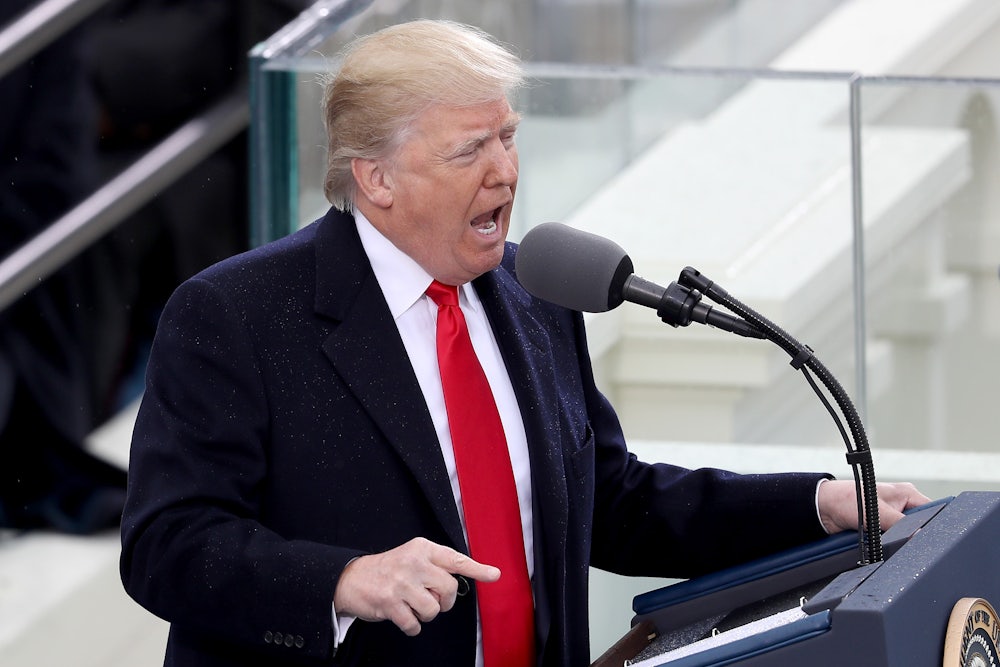President Donald Trump’s inaugural address on Friday was virtually indistinguishable from the campaign rhetoric he adopted in the last few weeks of the election: A full-throttle, even apocalyptic, argument that America has gone down a disastrously wrong path in recent decades and that it needs a political revolution based on a new nationalism.
“From this day forward, a new vision will govern our land,” he said. “From this day forward, it’s going to be only America first, America first.”
Politically, the speech was also clear evidence that Trump is doubling down on a cocktail of issues that puts him at odds, not just with the Democratic minority but also with his own Republican Party, and indeed, with many of the people he picked for his cabinet. He prioritized protectionism, immigration restriction, and a unilateral foreign policy focused on eradicating “radical Islamic terrorism” by creating “new alliances” (presumably with Russia).
Breaking with the norms of inauguration speeches, Trump provided little in the way of promises of reconciliation. On the contrary, his speech was a declaration of war against anyone who would stand in the way of his agenda, suggesting a new political landscape where Trump and a few loyalists (notably, senior counselor Steve Bannon and national security advisor Michael Flynn) will be fighting almost everyone else in Washington.
“We will no longer accept politicians who are all talk and no action, constantly complaining, but never doing anything about it,” he said.
Trump reiterated his vision of an America that had been betrayed by the elite—“For too long, a small group in our nation’s capital has reaped the rewards of government, while the people have borne the cost”—and used the same dark, dystopian imagery as he did in his campaign. According to Trump, America is a terrible and fearsome place:
[M]others and children trapped in poverty in our inner cities; rusted out factories scattered like tombstones across the landscape of our nation; an education system flush with cash, but which leaves our young and beautiful students deprived of all knowledge; and the crime and the gangs and the drugs that have stolen too many lives and robbed our country of so much unrealized potential.
This American carnage stops right here and stops right now.
The word “carnage” was one of many allusions to violence. Even when decrying racism (a clear response to criticisms that his campaign had incited bigotry and appealed to white grievance), Trump asserted a common humanity, based on a willingness for physical sacrifice: “It’s time to remember that old wisdom our soldiers will never forget, that whether we are black or brown or white, we all bleed the same red blood of patriots.”
Trump said, “We share one heart, one home, and one glorious destiny”—a call for national unity that might have been inspiring, if it weren’t so closely intertwined with claims that the rest of the world is a threat to America:
Every decision on trade, on taxes, on immigration, on foreign affairs will be made to benefit American workers and American families. We must protect our borders from the ravages of other countries making our products, stealing our companies and destroying our jobs.
Protection will lead to great prosperity and strength.
Trump’s speech was raw red meat for his followers, but there was nothing there for the 54 percent of voters who backed other candidates. And indeed, there was much in the speech that will disturb those Republicans who might have voted for Trump on the assumption that he would moderate his views once he took power. With this radical speech, Trump is promising a major transformation of the U.S. He’s also giving his opponents ample reason to keep resisting.
